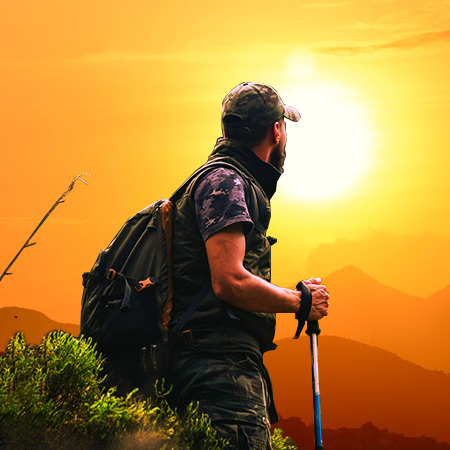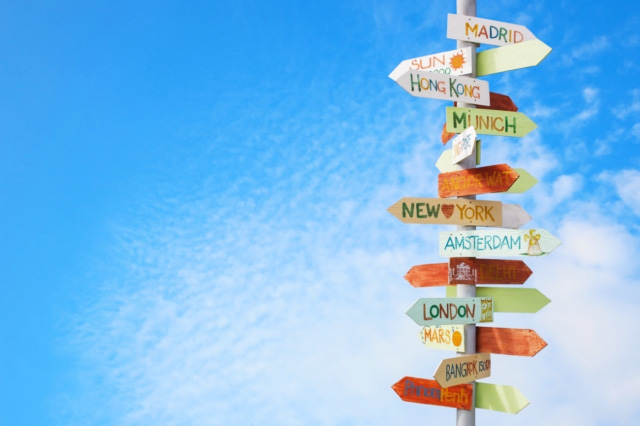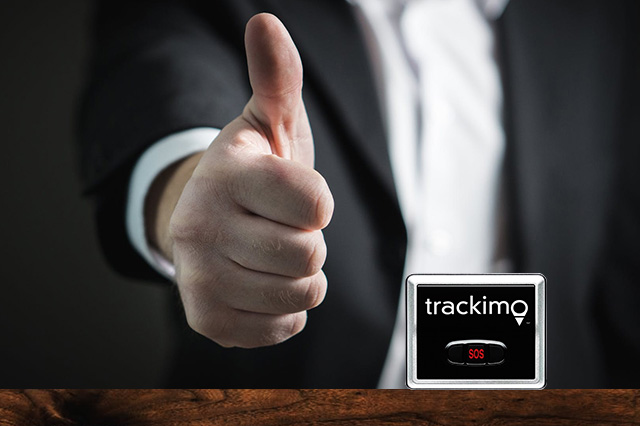
Perhaps you’ve watched too many thrillers. But come to think of it, not all who’ve tried traveling solo ended up floating in the river. As a matter of fact, most people traveling solo are women, and they’ve debunked quite a lot of myths surrounding solo travel. It’s safe and doable, and you won’t end up in a ditch!
Staying safe on the road is all about trusting your intuition, behaving abroad like you would at home. Would you get super drunk alone at a bar? Would you walk around alone at night? Ask the locals at your guesthouse about what you should watch out for, and practice common sense. What kept you alive at home keeps you alive on the road too. Here are safety tips that are actually pretty basic to begin with.
Staying Safe When Traveling Solo
1. Research your destination thoroughly.
Planning your itinerary sounds fun, but just like traveling with friends or a partner, traveling solo doesn’t mean you can forget about giving yourself a heads-up when it comes to getting around, picking the best place to stay in, or knowing which people to trust. What are the best neighborhoods and the ones you should avoid? Is there a medical center in the city, just in case? When it comes to accommodation, how are the reviews? What are former guests saying about their experiences? How do you get around there? What will public transportation like? Do you need to rent a car? Are there only certain kinds of taxis you should take? Does the situation change at night?
Imagine how you can be taken advantage of if you don’t understand the currency. Or the health problems you could face if you don’t know the necessary vaccinations for your destination. Research, research, research!
Scroll down for the videos

antemandic
2. Get yourself travel insurance.
Do you need travel insurance? If you travel constantly, then yes! It could save your life, and with so many online providers today, there’s no reason not to get it. Whether it’s getting sick from food in Paris or tripping on a root while hiking Patagonia, things can go wrong. If you don’t buy travel insurance, you’re responsible for anything that goes wrong. If you do, you can claim many expenses back.
3. Keep online copies of documents and a stash of cash hidden somewhere.
Prepare for the worst! Your purse might get stolen, your credit cards maxed out, or you need to go to the hospital. Always keep front and back copies of your credit cards and IDs saved to cloud storage like Google Drive, Dropbox, Apple Wallet, or Google Pay. In addition to these, keep a backup cash stash. Keep money hidden in a secret spot deep inside your luggage, like inside a tampon or a sock. In a separate spot, keep a backup credit card.
4. Check your government’s travel site.
Your government likely has information on the travel documents you’re required for traveling solo, as well as any warnings for your destination. Here are links for travel alerts for United Kingdom, United States, and Canada. If you’re staying abroad for a few weeks, registering as a citizen traveling solo abroad is a good idea.
5. Spend extra just for safety.
It can be hard to justify spending extra cash when it could go toward so many more fun activities, but it pays to be smart by investing in safety. If your flight is scheduled to land in a rough city late at night, you should spend more money on a guesthouse that will pick you up right from the airport instead of taking a bus into town and trying to find a guesthouse on foot. Pay extra money to take a taxi home at night if you don’t feel comfortable walking through the neighborhood on your own. Pay more to stay in a central neighborhood with lots of lively activity instead of a cheaper, quiet residential area where you feel isolated. Your safety deserves a special spot in your budget!

6. Invest in a GPS tracker.
GPS trackers are a good investment especially if you have important items inside your bag. Perfect for travelers, this device doesn’t take much space inside your bag as it’s as slim and small as a credit card. With it, you can track your luggage anytime and anywhere in the world. GPS trackers even help you quickly find luggage in case it goes missing. You don’t have to worry if you have multiple flights because its battery can last up to seven days. What’s even better is that you can receive an alert if your bag gets opened.
7. Take advantage of technology.
Stay connected when traveling solo by using an unlocked phone and purchasing a SIM card in each new country. Or check if your cellular service provider offers a good international travel data plan. Having data abroad will tremendously help you in case you get lost or get into trouble. Also, remember to keep a portable charger and a power pack with you at all times to keep your phone juiced up and ready for an emergency call. Learn the local emergency number, by the way.
8. Always keep your valuables with you!
Today, people travel with an amount of technology that was unfathomable a decade ago. Most travelers bring a smartphone at the very least, while many bring laptops, tablets, Kindles or other e-readers, DSLR cameras with pricey lenses, film equipment, and more. You should have a day bag into which you can fit all important items: your passport, your camera, your medication, your credit cards, your smartphone, and any other gadget or otherwise valuable equipment.
Never put these items into your general backpack. Never put these items into the luggage hold on a bus. Never put any of those items into your checked luggage on a plane. If you let them out of your sight, there’s a fair chance that they could be taken away from you forever.
9. Only take what you need.
There’s no need to go out for a walk in the city with all your credit cards, your passport, and the equivalent of $500 in cash. Take what you need for the day: maybe around $50 and a debit card. Keep the rest locked up in your accommodation. Almost every reputable hostel has lockers available for guests. Use them if they have them. In guesthouses, hotel rooms, or other places that don’t have a locker or safe for you, use a portable safe instead.
Leave expensive things at home. Don’t wear jewelry or flashy clothes/accessories that will attract attention to yourself. Even if they don’t go after your jewelry, they may target you for picking your pocket.
10. Blend in.
Research your destination in advance, observe how people dress, and try to pass as a local – or, if that’s impossible (like if you’re in Thailand or Mexico and look neither Thai nor Mexican), try to pass as a longtime expat. The more you stand out, the more you brand yourself as someone who is unfamiliar with the location, which makes you more vulnerable to criminals. This means covering your arms, legs, and cleavage in Muslim countries; wearing loose clothing in India; and wearing long pants in Europe and Latin America. There are cultural variations as to what is acceptable clothing. Be considerate of the local norms.
In tandem with blending in, it’s important to maintain confidence at all times, and even if you’re not confident, at least maintain the appearance of confidence.

11. Don’t trust strangers.
If someone wants to give you something for free, it may be a good idea to decline. A rose is often offered on the streets of Barcelona to draw travelers in for a con. A ring apparently found on the ground and offered to you as the person who possibly lost it is another ruse to turn away from. Familiarize yourself with the common con games travelers encounter. Some con artists have mastered the art of befriending travelers, getting them to leave their valuables unattended, and robbing them before taking off.
Don’t tell strangers where you’re staying either in words or actions. Your accommodation should be your safe haven. If you’re just getting to know someone, don’t trust him or her to guard your expensive electronics while you’re in the bathroom. It’s not rude to be cautious.
12. Stay sober!
This is a tip that doesn’t get said often enough. Whether you’re at home or on the road, when you drink alcohol, you dull your senses and slow your reaction time, making you vulnerable to others. That doesn’t mean that you should avoid drinking altogether. Instead, drink slowly. Have a glass of water in between each drink. Your body will thank you in the morning. Don’t let someone distract you so that they can slip something into your drink. Be aware of it at all times. Most importantly, resist the pressure—gentle or not—to keep up with others who have high alcohol tolerance, especially in countries where it’s common.
This is not just important for being alert but also for your judgment. Judgement is compromised by not just alcohol but also drugs. Whatever your drug of choice, it’s best to stay sober when traveling solo.

13. Stay in touch.
It’s a good idea for at least one designated friend or family member to have a copy of your itinerary in advance: your flight numbers, your accommodation, and a general schedule of where you’ll be on which dates. Staying in touch is a way to assuage the fears of your loved ones, especially when traveling solo, but if you find yourself in trouble, they would be able to locate you much more easily than if you had been vague about your whereabouts.
Bon voyage!
Watch the videos below